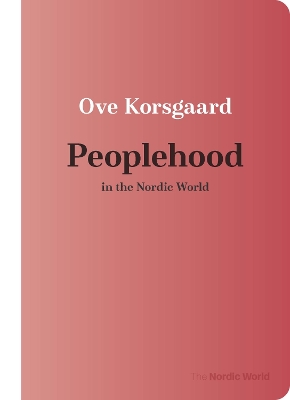Nordic World
1 total work
What do we mean when we say “the people”? The concept did not carry the contemporary meaning of a group of individuals with governing influence and political will until after the invention of democracy and the nation-state. Previously, in the Nordic context, the word people (folk) was associated not with a sovereign nation but rather with home and family. Subjects were only understood in relation to the heads of household (elders and patriarchs), state (kings and lords), and the Christian church.
The term remains a battlefield of mixed or even opposing interests and has developed at least three different meanings: a political unit (demos), a cultural entity (ethnos), and a social multitude (plÉthos). As perceptions of political affinity and society change over time, “the people” will doubtless continue to adopt and adapt its meanings, with ramifications for both personal and group identity.
Modern historian Ove Korsgaard focuses on the crucial struggles over who has (or has not) belonged to the people in the past 175 years and looks at its implications for state- and nation-building in Denmark and other Nordic countries.
The term remains a battlefield of mixed or even opposing interests and has developed at least three different meanings: a political unit (demos), a cultural entity (ethnos), and a social multitude (plÉthos). As perceptions of political affinity and society change over time, “the people” will doubtless continue to adopt and adapt its meanings, with ramifications for both personal and group identity.
Modern historian Ove Korsgaard focuses on the crucial struggles over who has (or has not) belonged to the people in the past 175 years and looks at its implications for state- and nation-building in Denmark and other Nordic countries.
